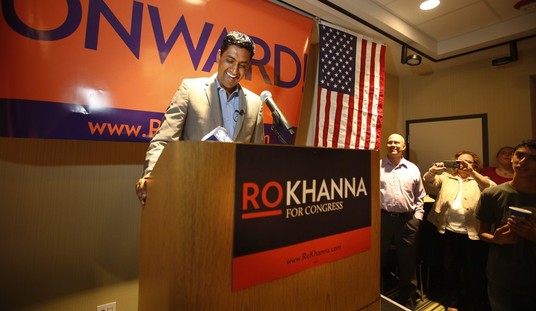When did negative campaigning and attack ads start? The television era? Maybe when radio became a national media? In fact, negative campaigning has a long history, as long as the Republic itself. Edward Larson wrote a book about the first contested, partisan election in American history, one that featured two giants of the American Revolution, and how their campaigns painted each other as traitors and atheists:
Since the time of John Adams and Thomas Jefferson, successful politicians have sought to sanctify their candidate and demonize their opponent. After three largely nonpartisan elections, the first campaign for president, in 1800, pitted Adams against Jefferson. Patriots in the best sense of the word, both men were brilliant, successful lawyers who stood out among the surviving heroes of the American Revolution. Devoted family men, they had served their states and country during the war and held high positions in George Washington‘s administration.
No finer Americans ever faced off for the presidency, yet partisans on both sides immediately went negative. The two best-known authors of the Constitution, Alexander Hamilton and James Madison, morphed into opposing party leaders slinging the mud.
Viewers of the excellent HBO miniseries John Adams will already know this, but others may find themselves surprised at the ferocity of the founding fathers of this nation. Adams himself avoided participation in the vilification of Jefferson as a “debauched deist” and the rumor-mongering regarding Jefferson and his slave Sally Heming, while Jefferson quietly funded attacks on Adams as an Anglophile likely to reunite the US with Great Britain, or perhaps proclaim himself as monarch rather than President. Larson makes the point, which should be rather obvious in retrospect, that revolutionaries do not tend to be calm, mild, and milquetoast, and points to the somewhat hyperbolic list of grievances in the Declaration of Independence as proof.
So negative campaigning, as it turns out, has a long and storied history in the United States. As both Adams and Jefferson found out, it works, and not just in elections. Jefferson started the attack machine after Adams won in 1796, continuing to fund the negative press against Adams throughout his presidency with an eye to winning in 1800. When Adams discovered it, he stopped talking to Jefferson for years, but the man from Monticello had created yet another tradition thought much more modern: the perpetual campaign.
Remember this when people try to reform the political process by restricting political advertising, such as with the BCRA. The founders respected free speech enough to allow for all of its political manifestations, and they even invented most of what people now call “abuses” in political speech. They abided the negative aspects of politicking because the alternative — government-controlled speech — would eventually lead to tyranny. Free speech may create affliction, but it also serves as the greatest cure for any of the ills it produces.







Join the conversation as a VIP Member